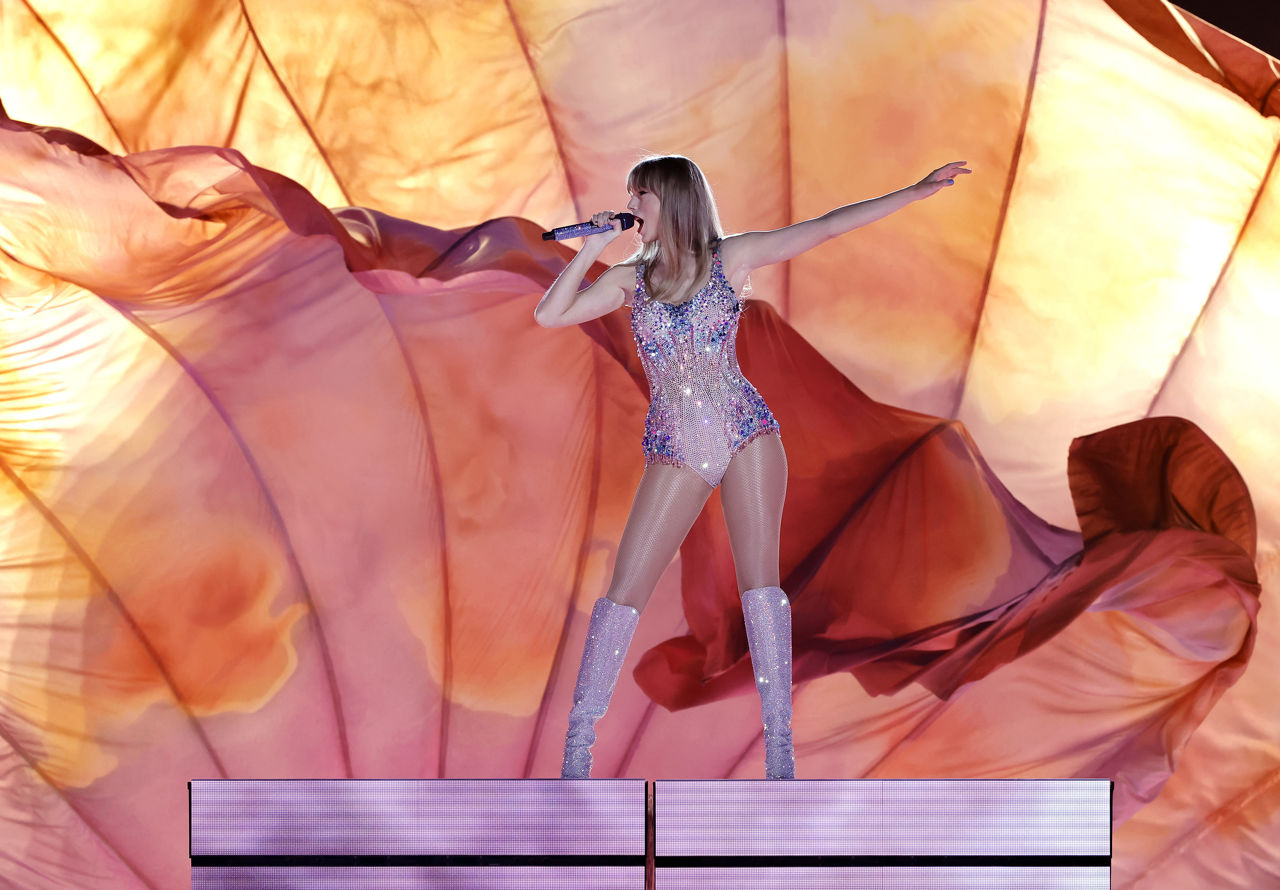How fandom became the surprise secret weapon of 2023
How was Barbie such a smash-hit? Why is Taylor Swift's tour so successful? What made IKEA choose to use anime for a 2023 campaign? Paul Greenwood, Head of Research & Insight at We Are Social, says that the rise of 'stan' culture and the super-fan is fuelling both culture and creativity.
Hands up if, when you first heard Hollywood was making a movie about Barbie, you predicted it would be the undeniable smash hit film of the year.
No, me neither. A feature-length film about the toy sensation could have been a major flop but, instead, went on to gross more than $1.4bn worldwide. So, how, in the post-MeToo era of female empowerment, did the story of an unrealistically skinny, image-obsessed plastic doll hit the mark so sensationally?
How, in the post-MeToo era of female empowerment, did the story of an unrealistically skinny, image-obsessed plastic doll hit the mark so sensationally?
In short, it harnessed fan culture. Yes, there was a great script (America Ferrera’s monologue as Gloria had women applauding in packed cinemas), an all-star cast and a brilliant director, but there were also some very savvy marketing tactics deployed.

Above: Barbie harnessed fan culture to become a global smash hit.
‘Stan’ culture is - for the uninitiated - a term that blends stalker and fan, and has evolved to become a positive term for fans who are highly engaged and supportive of a movement, person or idea. Barbie tapped into the stan culture by ensuring the film’s marketing appealed to and fuelled mass fandom. From plug-and-play meme templates and themed merchandise to cinema-goers dressing up for screenings, the movie briefly united people across the world.
‘Stan’ culture blends stalker and fan, and has become a positive term for fans who are highly engaged and supportive of a movement, person or idea.
And while Barbie created an engagement and excitement where there was no current fan community to tap into, other marketers are utilising existing fan bases and building something significant off the back of them.
Anime is growing in popularity in Western society and its fans - many of whom are Gen Z - are deeply passionate and committed ones. IKEA recognised this and earlier this year used it to great effect in the promotion of its latest back-to-school range in an anime style.
Credits
powered by
- Agency Ogilvy/New York
- Production Company Clubcamping
-
-
-
Unlock full credits and more with a Source + shots membership.
Credits
powered by
- Agency Ogilvy/New York
- Production Company Clubcamping
- Creative Director Sho Matsuzaki
- Creative Director Fanny Josefsson
- Art Director Ashley Aviles
- Copywriter Caleb York
- Producer Karen Rossiter

Credits
powered by
- Agency Ogilvy/New York
- Production Company Clubcamping
- Creative Director Sho Matsuzaki
- Creative Director Fanny Josefsson
- Art Director Ashley Aviles
- Copywriter Caleb York
- Producer Karen Rossiter
Above: IKEA recognised the popularity of anime and used it in a 2023 campaign.
Elsewhere collection culture remains a key part of Gen Alpha’s lives, with trading cards a concept that continues to thrive, and McDonalds’ Monopoly game - first introduced in 1987 - is still going strong. In a similar move, Heinz in the US tapped into the public’s love of collecting with 'Saucemerica', which invited Americans to collect 50 special condiment sachets paying homage to each individual state.
No longer is there any shame or apology in the whole-hearted embracing of various moments.
But as entertainment culture becomes more niche there are fewer shared cultural touchpoints, making it harder for Gen Z - already identified as the loneliest of the younger generations - to find connection in the wider world. And so the opportunities that do arise are pounced on and run with.
Music fans went unashamedly wild for a number of sold out world tours this year - Taylor Swift, Harry Styles and Beyonce all hit the road - and where this would once have been dismissed as extreme super-fan behaviour, uncool for its unapologetic enthusiasm, in 2023 it has come to define your average fan response.
No longer is there any shame or apology in the whole-hearted embracing of various moments - instead such a reaction is merely a sign of the times. This sense of ‘normal’ people acting like ultra fans - or ‘Everyday Fandom’ as we call it in our 2024 Think Forward report, is just one of the trends being embraced by social media users in 2024.

Above: Heinz tapped into the public’s love of collecting with 'Saucemerica'.
After extended periods of social isolation, and with the cost of living rising, people are looking to get the most out of their interests and experiences. They are no longer playing it cool but celebrating every moment of joy to the fullest. Whether that’s turning up in costume, meeting up with other (unknown) fans ahead of events, creating fan art or embracing marketing teasers, they are showing up for every aspect of the brand performance and - crucially - spreading the word to other fans.
The rise in popularity of more private digital platforms, such as WhatsApp, Discord and Telegram, has created a niche platform supremacy.
The internet has obviously facilitated this behaviour to the extreme (original Barbie fans would have had no way of sharing the love far and wide) transforming how we express and share our passions and driving a sense of community with major monocultural moments.
And one particular quirk of the internet in 2023 is feeding the fandom vibe. The rise in popularity of more private digital platforms, such as WhatsApp, Discord and Telegram, has created a niche platform supremacy. Instead of flocking to public forums such as Facebook or Twitter for threads and message boards, fandoms are congregating and flourishing in private. The gradual disappearance of these digital town squares is actually fuelling the trend, as fewer viable options for communal gathering reminds people what they’re missing.

Above: Music fans went unashamedly wild for a number of sold out world tours this year, including Taylor Swift's.
Meanwhile, creatively, fandom is driving and enabling inclusivity. Black TikTokkers are reimagining Harry Potter through the lens of Black culture, allowing those who have previously felt unrepresented in the novels to position themselves more prominently.
And fandoms are even modernising old movies, such as those who are reimagining horizontally-filmed cinema for the vertical screen, using AI to fill in the gaps. A niche hobby, maybe, but an appreciative audience nonetheless.
Rather than pandering to a captive audience, fandom has taken on a creativity of its own.
Rather than pandering to a captive audience, fandom has taken on a creativity of its own, evolving into a boundary pushing opportunity that, commercially, will allow brands to participate in effective behaviours that amuse, inspire and benefit all parties.
2024 will see no let up in the rise of fandom communities, and the creative world will only benefit as fans bring their own interpretation of culture to the wider world, owning their own small corner of their respective passions.
)




 + membership
+ membership








